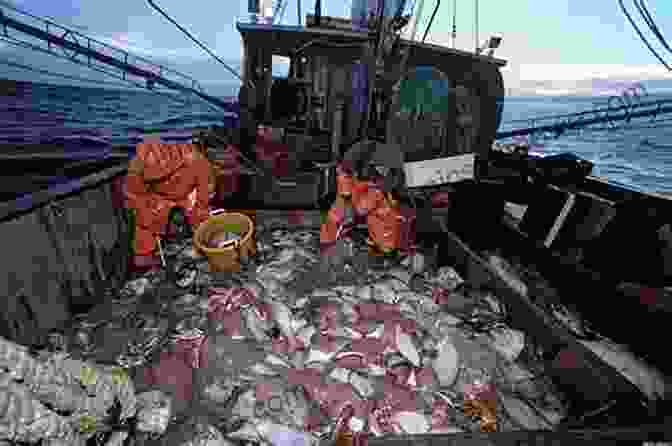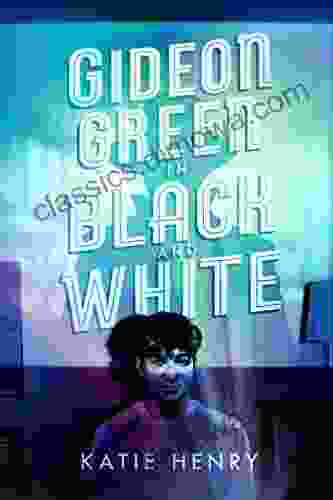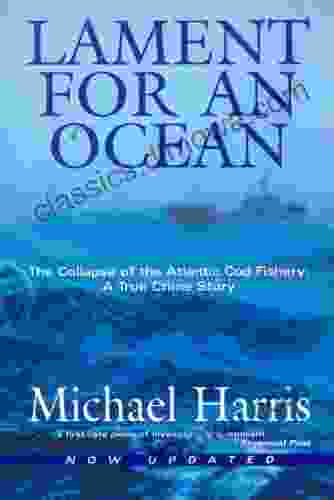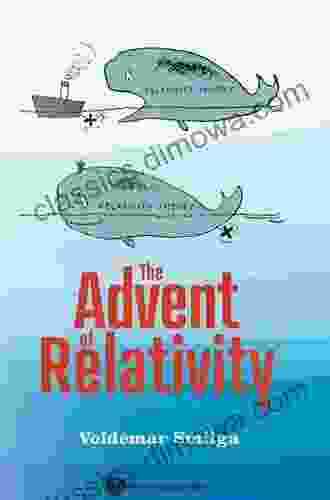The Devastating Collapse of the Atlantic Cod Fishery: A Tragedy with Lessons for the Future


The collapse of the Atlantic cod fishery in the 1990s stands as a stark reminder of the consequences of unregulated and unsustainable fishing practices. This once-thriving fishery, which had sustained coastal communities for centuries, was brought to its knees in a matter of years, leaving a devastating legacy that continues to impact ecosystems and livelihoods today.
4.7 out of 5
| Language | : | English |
| File size | : | 3191 KB |
| Text-to-Speech | : | Enabled |
| Enhanced typesetting | : | Enabled |
| Print length | : | 400 pages |
| Screen Reader | : | Supported |
| X-Ray for textbooks | : | Enabled |
In this article, we will delve into the factors that led to the collapse of the Atlantic cod fishery, explore the lessons learned from this tragedy, and consider the implications for future fisheries management.
The Rise and Fall of the Atlantic Cod Fishery
For centuries, the Atlantic cod fishery flourished in the North Atlantic Ocean. Cod, a highly valuable fish, was a staple food for coastal communities and a major economic driver for countries such as Canada, the United States, and Iceland. By the early 1900s, the fishery had grown to an industrial scale, with large fishing vessels employing advanced technologies to harvest cod in unprecedented quantities.
However, this unregulated expansion came at a steep price. As fishing pressure increased, the cod population began to decline rapidly. By the 1970s, scientists were warning of the impending collapse of the fishery, but their warnings were largely ignored by governments and the fishing industry.
Causes of the Collapse
Numerous factors contributed to the collapse of the Atlantic cod fishery, including:
* Overfishing: The relentless pursuit of cod by commercial fishing vessels depleted stocks faster than they could replenish themselves. * Bycatch: Non-target species, such as flounder and haddock, were caught in large numbers and often discarded dead or dying, further reducing fish populations. * Habitat degradation: Fishing gear and other human activities damaged essential cod habitats, such as spawning grounds and nursery areas. * Lack of regulation: Inadequate management measures, including poorly enforced fishing quotas and weak enforcement, allowed overfishing to continue unchecked.
The Devastating Consequences
The collapse of the Atlantic cod fishery had catastrophic consequences:
* Economic losses: The fishery's collapse resulted in billions of dollars in lost revenue and the loss of thousands of jobs in fishing communities. * Social disruption: The decline of the fishing industry devastated coastal communities that had relied on cod for their livelihoods. * Ecological impacts: The loss of cod had a ripple effect on marine ecosystems, impacting species that relied on cod as a food source or predator.
Lessons Learned
The collapse of the Atlantic cod fishery was a wake-up call for the global fisheries industry and policymakers. The following lessons have been learned from this tragedy:
* Sustainability is paramount: Fishing practices must be sustainable to ensure the long-term health of fish populations and marine ecosystems. * Regulation is essential: Effective fisheries management requires strong regulations and enforcement to prevent overfishing and protect fish stocks. * Ecosystem-based approaches: Fisheries management should consider the entire marine ecosystem, not just individual species, to ensure the conservation of biodiversity. * Stakeholder involvement: Collaboration between scientists, fishermen, and policymakers is crucial for developing sustainable fisheries management plans.
Implications for Future Fisheries Management
The collapse of the Atlantic cod fishery has profound implications for future fisheries management. To avoid similar tragedies, it is imperative that we:
* Implement precautionary management: Establish conservative fishing limits and implement measures to protect fish habitats. * Promote selective fishing gear: Encourage the use of fishing methods that minimize bycatch and preserve non-target species. * Monitor and enforce regulations: Establish effective monitoring systems and enforce fishing regulations strictly to prevent overfishing. * Invest in science: Support scientific research to improve our understanding of fish populations and ecosystems.
The collapse of the Atlantic cod fishery is a sobering reminder of the consequences of unsustainable exploitation of our marine resources. By learning from the mistakes of the past, we can work together to implement sustainable fisheries management practices that protect fish populations, sustain coastal communities, and preserve the health of our oceans for future generations.
4.7 out of 5
| Language | : | English |
| File size | : | 3191 KB |
| Text-to-Speech | : | Enabled |
| Enhanced typesetting | : | Enabled |
| Print length | : | 400 pages |
| Screen Reader | : | Supported |
| X-Ray for textbooks | : | Enabled |
Do you want to contribute by writing guest posts on this blog?
Please contact us and send us a resume of previous articles that you have written.
 Book
Book Novel
Novel Page
Page Chapter
Chapter Text
Text Story
Story Genre
Genre Reader
Reader Library
Library Paperback
Paperback E-book
E-book Magazine
Magazine Newspaper
Newspaper Paragraph
Paragraph Sentence
Sentence Bookmark
Bookmark Shelf
Shelf Glossary
Glossary Bibliography
Bibliography Foreword
Foreword Preface
Preface Synopsis
Synopsis Annotation
Annotation Footnote
Footnote Manuscript
Manuscript Scroll
Scroll Codex
Codex Tome
Tome Bestseller
Bestseller Classics
Classics Library card
Library card Narrative
Narrative Biography
Biography Autobiography
Autobiography Memoir
Memoir Reference
Reference Encyclopedia
Encyclopedia Laurie Lucking
Laurie Lucking Audrey Wang
Audrey Wang Sharon Dogar
Sharon Dogar Kate Ashton
Kate Ashton Yolanda Ridge
Yolanda Ridge Luke Mckenna
Luke Mckenna Chandra Sparks Splond
Chandra Sparks Splond Barbara Le Bas
Barbara Le Bas Axel Lewis
Axel Lewis B N Rundell
B N Rundell Audrey Muller
Audrey Muller Avneet Kumar Singla
Avneet Kumar Singla Brian J Sorrells
Brian J Sorrells Brian Gill
Brian Gill B L Goodwin
B L Goodwin Mircea Pitici
Mircea Pitici Allyson Kennedy
Allyson Kennedy Richard Opheim
Richard Opheim Matthew Bailey
Matthew Bailey Henry Charles Lea
Henry Charles Lea
Light bulbAdvertise smarter! Our strategic ad space ensures maximum exposure. Reserve your spot today!

 Jackson HayesUnravel the Enchanting Realm of The Wizard of Ounces Oz: A Literary Odyssey...
Jackson HayesUnravel the Enchanting Realm of The Wizard of Ounces Oz: A Literary Odyssey...
 John GrishamWonders and Mysteries of Ancient Egypt: An Enchanting Journey into an Ancient...
John GrishamWonders and Mysteries of Ancient Egypt: An Enchanting Journey into an Ancient... Boris PasternakFollow ·5.6k
Boris PasternakFollow ·5.6k Blake BellFollow ·3.5k
Blake BellFollow ·3.5k David Foster WallaceFollow ·16k
David Foster WallaceFollow ·16k Walt WhitmanFollow ·11k
Walt WhitmanFollow ·11k Dylan MitchellFollow ·17.6k
Dylan MitchellFollow ·17.6k Anton ChekhovFollow ·11.4k
Anton ChekhovFollow ·11.4k Osamu DazaiFollow ·7.6k
Osamu DazaiFollow ·7.6k Gordon CoxFollow ·5.8k
Gordon CoxFollow ·5.8k

 Marcus Bell
Marcus BellHigh Lonesome: A Literary Journey into the Heart of the...
<p>Hannah weaves a intricate...

 Gabriel Hayes
Gabriel HayesRediscover Gideon Green's Timeless Adventures in "Gideon...
Embark on an Extraordinary Journey with...

 Samuel Taylor Coleridge
Samuel Taylor ColeridgeEscape to a Literary Haven: Discover the Enchanting World...
Embark on an Extraordinary Literary...
4.7 out of 5
| Language | : | English |
| File size | : | 3191 KB |
| Text-to-Speech | : | Enabled |
| Enhanced typesetting | : | Enabled |
| Print length | : | 400 pages |
| Screen Reader | : | Supported |
| X-Ray for textbooks | : | Enabled |













